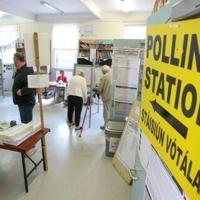Halfway through the four-day voting process to elect a new European Parliament, Slovakia and Italy have joined in, with Slovakia still reeling from an assassination attempt last month on its Prime Minister.
The majority of the European Union’s 27 member countries, including France and Germany, are set to vote on Sunday, with overall results expected later that evening.
Following the attempted assassination of Prime Minister Robert Fico on May 15, Slovakian voters have shown support for the ruling left-wing populist Smer-SD party. Fico blamed the attack on the liberal opposition and criticized their “aggressive and hateful politics”.
The assassination attempt, carried out by a politically motivated 71-year-old poet, has solidified Fico’s party’s stance against EU arms deliveries to Ukraine and their opposition to alleged “warmongers” in Brussels.
Predictions suggest that far-right parties in Europe may gain up to a quarter of the 720 seats in the European Parliament, potentially weakening centrist mainstream groups.
– Meloni courted –
Italy’s upcoming election will provide insights into the composition of the new parliament, with the post-fascist Brothers of Italy, led by Prime Minister Giorgia Meloni, expected to play a significant role.
Current EU Commission Chief Ursula von der Leyen has been engaging with Meloni and expressed a willingness to work with far-right lawmakers who are pro-EU and not aligned with Russian President Putin.
The lead-up to the EU elections has seen incidents of violence, including a recent attack on Danish Prime Minister Mette Frederiksen, though not all incidents are politically motivated.
– ‘Scary’ far-right –
Italy’s Meloni has positioned herself as a strong opponent of illegal immigration, a key issue driving support for far-right parties across Europe. In the Netherlands, the anti-immigration party of extreme-right leader Geert Wilders won second place in recent elections.
Rhetoric around immigration and the rise of the far-right has been a concern for many voters, with some expressing fear over the increasing influence of these parties.





